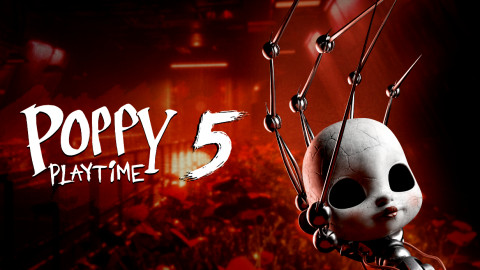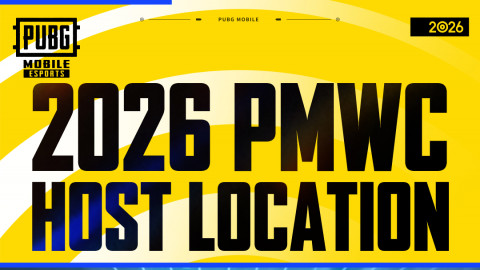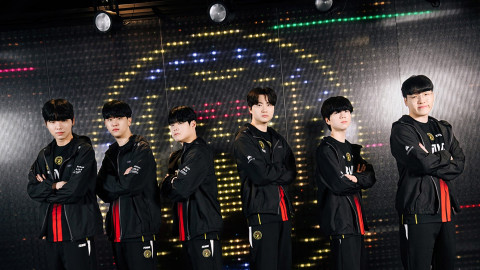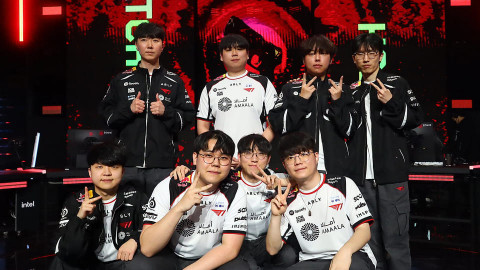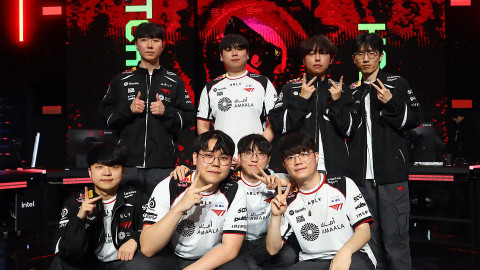
With physical tournaments just recently starting to appear again, Ultimate commentators like Zak "Coney" Zeeks are only now getting back into the swing of things. Panda’s Coney sat down with Inven Global to talk about the challenges of shifting his work in line with the pandemic, how Smash commentary differs with other esports, and his optimism regarding the future of the Ultimate tournament scene.
You’re someone that has always had a large presence at most of the big events in the world. What was it like for you having to shift more to streaming and content creation? Once things amp up in the tournament world, are you going to have you content to make of a backseat? What is your plan at the moment?
I think the content is just going to shift a little bit. I'm still not somebody who feels 100% comfortable in the content creator role. I don't think of myself as a content creator, I think I'm LARPing right now. But people seem to like it and I enjoy doing it, don't get me wrong. But I don't feel like my brain is fully wired for the content creator life, so I'm excited to get back to events. That said, I don't think that content will necessarily take a backseat, I think it just will shift. I've been streaming for seven years, but only for the past year have I been taking it seriously. And that induces a huge shift in what content you make, how you stream, what you play. And I think it's gonna be similar to that, where the dynamic of what I'm doing is changing and I have a lot of ideas capitalizing on traveling, going to events, stuff like that.
It's honestly up in the air, man. It's a question for me too because there's also new responsibilities at Panda. Because I got hired at Panda right before all the quarantine stuff happened. And Panda has a huge boots-on-the-ground presence at live events. So that's gonna be another bit. It's a question mark, for a lot of different reasons.
"I think Smash having no real rules and FGC in general... really gives casters so much freedom to play with"
So far, what’s been the most enjoyable gaming-related work you’ve done during the pandemic?
I've been able to do a lot of things on my stream that I wouldn't be able to do otherwise. So from a personal level, I've been able to do a lot of stuff that I always had the idea of when I was working my office job, that I've been able to work actually do here. I did a Donkey Kong Country marathon, and we raised like $5,000 for charity. I did some Super Mario 64 streams, where I speedran it and raised like $6,000-$7,000 for charity. Being able to do those long-form charity streams has been super rewarding for me because it feels like I can do something that is both fulfilling and creatively neat.
In a professional sense, outside of just the personal sense, I've been able to do a lot of things with Nintendo and with other online events that have just been great. Being able to still do Smash commentary online has been really fun, even though it's a little different. But I think just having the opportunity to be a part of these big events that are happening during quarantine has been cool.
Everyone talks about how much play is affected by being online — how is commentary affected?
It's huge, in ways that you may not think. The obvious one is just the dynamic between two commentators. I've worked with certain commentators for years and years, and I get their vibe and their manner of speaking in their patterns in the live sense. But when you transition online, there are a lot of other factors that can come in. Whether it be lag, whether it be technical difficulties, whatever, not being there in the moment can really be tougher to get that rhythm down — the dynamics between casters.
And then I think the other huge thing is not being able to draw on the crowd's energy. I am somebody who very much wants to translate the feeling in the room at a tournament and try to get that across in my commentary, and not being able to do that because I'm sitting in my room watching a screen. It's not quite the same, you don't feel the same electricity, and that's somewhat difficult. I've talked with a lot of casters and they could sometimes have difficulty staying in the moment. And it's not that it's a condemnation of the caster or something that they shouldn't learn to deal with. But it's just totally different than what we've been doing for years and years. It is strange to have to walk through this different experience.

I wanted your perspective on Smash commentary in general. You’re someone that’s had vocal opinions about this. Amongst different games in esports like League of Legends, Counter-Strike, Overwatch — all incredibly different games — they for the most part have set commentary roles and they have analyst desks at big events. It’s not that Smash isn’t capable of this, for the most part, it doesn’t seem to be of interest to the community. Why do you think this is?
I think casters and even the community at large actively resist that, which is kind of interesting. I think the way that it started was... Smash... as an offshoot, the FGC in general, didn't have the backing that a lot of other esports have had historically. And so the production has always been much more bootleg for lack of a better word. And because of that casters — or just anybody that would get on the mic at any time — it was just some guy. And so there weren't classically trained casters, or analysts, or play-by-play or anything like that. They were just dudes that loved the game. And I think that passion continues to this day, where the best casters in any game are the people who care about it the most and hone their craft in that way.
In terms of the differences between more buttoned-up casting, "commercial grade" casting... I think Smash having no real rules and FGC in general... really gives casters so much freedom to play with, and not having to adhere to a rigid script, or have any defined expectations allow whoever wants to be a commentator to really define their own space and blaze their own trail for whatever they want to be doing. And whatever voice they want to have in the scene.
"[Dash] is just like... it shouldn't just be esports. The guy could work on a news desk. He's just so polished."
You’re someone that has extensive experience working with EE and TKbreezy — two of the most prominent Smash commentators. What are the differences in how you approach commentary with them, and how do you mesh with their two styles?
TK and I have a bit more natural chemistry — we were just friends straight up and we've been friends for years. So when we cast together, it feels effortless. It's just two dudes sitting on a couch, which I think is sort of the quintessential vibe that a lot of Smash commentary should be going for. I think that casual approach is really valuable. And I think a lot of people enjoy it.
TK is very easy... Not to say that EE is harder, but I would say that EE has a very defined role and a very specific thing that he's good at. EE is absolutely a color commentator. He is amazing at getting the clip, getting the soundbite, really pushing the storyline, putting an exclamation point on events. And so that shifts me into more of a play-by-play analyst role, which I'm totally fine with happening. But it is different. And you have to take that approach with every caster that you work with. And I've been lucky enough to work with EE and TK for so long, that we now get that vibe as soon as we sit down. Whereas if I'm with a new caster for the first time, it can sometimes be feeling it out over time.
You're someone that's been playing and watching League of Legends for a very long time. If you had to choose one League caster that you think would make a great transition as a Smash caster, who would you say?
Captain Flowers, 100%. Done, that guy. He's sick. From what I've seen that dude has serious talent. Also, this is not what you asked and this is just on the side, but I have to give this guy a shoutout: Dash is a generational talent as a host. I've been trying to do a lot more hosting for Smash events, and he and Goldenboy are the two guys that I'm really looking up to. And I wish I had more opportunities to do it in Smash, so I could hone it. Because I look at how he does it. He's so smooth. I don't know how he would do in a casting role and Smash, because I haven't seen him as a caster as much in League because I haven't had my eyes on it. But he is just like... it shouldn't just be esports. The guy could work on a news desk. He's just so polished. But yeah, Captain Flowers for sure.
What about him specifically?
I think that he has the energy and ability to come up with stuff just immediately on the fly that is really great and encapsulates a moment. Getting that soundbite, like I said with EE earlier. It's not something that you can really teach either — it very much is a talent. And it's something that sort of has to be honed over time. And I just get the sense that guy is...I could definitely see him working in this room. And that's a high compliment because I don't think everybody could go to one or the other. I don't think every Smash caster could go to League. And I don't think every League caster could go to Smash. It takes a very versatile person on the mic to be able to sort of switch in that way.

Within Smash, we haven’t really seen many examples of Smash personalities switching over to major esports in a commentary role. You’re someone that has a long history with League of Legends, could you see yourself ever making that switch?
I don't know. Smash is the only game that I have such a long history with and I came up in an environment where there wasn't that ladder that you had to climb. It was just as esports and broadcasting got bigger — Smash got bigger, and I got bigger with it. So I didn't have to go through the steps that I would if I would want to start commentating a different fighting game or League.
There was a small period of time years ago when I wanted to get into League casting, and I started casting some in-house seven or eight years ago. But the games are sort of long. There are long lulls where you have to sort of vamp and wait for something to happen. You're at the mercy of whatever meta is in at the time. And that can be a nightmare. If it's a situation where it's like Sejuani and tanks — it could get really dull. And it just becomes vamping.
And also, I think that with League one of the other concerns is that since it is owned wholly by Riot— having to adhere to those standards, I think could be somewhat of a muzzle. Not to say that it's impossible to be professional, but having to adhere to a larger organization's expectations I think could be somewhat tough. Because when it comes to Smash events, we literally don't have any of that. We just get told "Hey, does this event allow cursing? Okay, yeah, let it rock." And that's really it, as opposed to League which I've heard can be a little bit more refined.
"A year ago, we had this whole issue of "Is this the apocalypse for Smash? Is Smash dead?" because of all the misconduct. And now, we've had offline events, open registration..."
What is something that you think Smash events do better than any other esport that other esports can learn from, and vice versa?
It's a double-edged sword. On the one hand, I think that other games having other methods of organization is supremely valuable. So the way that it works is there's somebody at the top that decides stuff that will make administrative decisions, or logistical rulings, or behavioral conduct rulings. I think having that in Smash would be supremely valuable, because right now, figureheads sort of make up the rules as they go along, which can obviously backfire in a lot of ways.
A lot of things are open to regional jurisdiction. Let's say California wants to allow one stage on the rules, but New York isn't into that. So New York isn't going to have it. And then you have players traveling across the country and getting surprised by rules that they may not be into. That's an extreme example, but there have been situations where a lot of tournament organizers go into business for themselves and make decisions that are against the grain. Which isn't necessarily a problem. The thing that we value about Smash is the ability to have that individuality and have that no rules approach. But it does create problems, particularly, as you saw last year with the behavior of some people in Smash. And now we have this issue of "Who's in? Who's out? Should we ban X? Should we ban Y? How far do we go?" It's a very sticky situation that I think could be alleviated a lot, if there were people at the top.
But the problem is anybody at the top gets shouted down from people at the bottom, because who are they to make these decisions, right? They're just community leaders and community figures just like anybody else. And also, historically, when people have tried to take leadership positions in Smash, and establish organizations and lead in those kind of leadership roles, it has not gone well. Mostly, because a lot of people just want the pretty badge. They want to be like in the treehouse. They're like, "Oh, I'm part of the club who has power." That's an issue.
I think that's both answers. It's a very delicate balance. Because when I look at some communities, I think having an organization or a company at the top that makes these rulings can be really constricting. And it can force players and announcers and figureheads into positions that they don't want to be in. But at the same time, having that level of structure is important for other reasons. So I know it's sort of a nothing answer because it's both. That's always what I think about, you know?

It’s been really hard to gauge the competitive scene without any physical representation at tournaments. Most of the game’s history has been online. Do you think the game can surpass Smash 4 in attendance and viewership of events? How do you think Ultimate is going to be doing in a year’s time?
Oh, god, no question. People are chomping at the bit. A year ago, we had this whole issue of "Is this the apocalypse for Smash? Is Smash dead?" because of all the misconduct. And now, we've had offline events, open registration... I work very closely with a guy high up on Riptide, and Riptide is a big event that's happening in September. It's a waterpark tournament. Even disregarding COVID regulations and safety precautions, there's always this concern of if anybody will even sign up. Is anybody coming back? Should we even put a cap on this tournament? Within the first hour, they hit their cap of 512. And then a lot of players said they couldn't make it. So they said, "Okay, we're gonna reopen registration again", doubling the people, 1024. They opened it up and it sold out within like15 minutes.
READ MORE
These are the most requested Super Smash Bros. Ultimate DLC fighters in Japan

People want to get back to Smash stuff. The offline scene I think is going to explode. Will it explode in terms of viewership? I don't know. I think people are very amped to get back to the offline stuff and compete. But in terms of people watching, or actual crowds and sort of Twitch audiences, I don't know if that same audience will be there. But I have a feeling it'll be business as usual after a couple months. It'll absolutely eclipse Smash 4, no question. People are really excited about Ultimate. And I don't know where it'll be in a year's time or two years' time, because obviously, the game will sort of scale down a little bit — Kazuya is apparently the last DLC. There's always the chance Sakurai is just lying. Either way is fine.
But I think that Ultimate is going to come back in a major way, especially considering how many people have transitioned into the content creator role. But on Panda, one of the things that we really try to push for our players is having that presence in terms of content, and being able to garner an audience. So like WaDi, Marss... People on our brand have grown huge audiences during quarantine, which I think will be hugely beneficial when they get actually back to events. We don't know what the first event is going to be like with WaDi or Marss going to it, because we feel people are going to be stopping them for autographs all the time. They might have a lot more fans in the crowd. That's also another factor, where there's been this huge boom in terms of content for a lot of Ultimate players. That's not even mentioning Hungrybox, who has just taken over the Ultimate scene.
READ MORE
Hungrybox finally realizes why he's so much worse at Super Smash Bros. Melee online

Where do we ideally see Coney in five years?
It's so hard to say. Because if you asked me five years ago where Smash would be, I would not be able to say where we are now. When Smash 4 first came out, the first tournament I did, I made like $50 for commentating all weekend. And by the end of Smash 4, it was at the spot where it is now where people are flying all over and there are actual jobs for this thing. And there's a whole content infrastructure, and it's a totally different world. And I feel like we're gonna see the same thing in five years.
There's a lot of things that we at Panda are working on behind the scenes that I'm super excited to share. And I think that those are going to change the face of the scene in a lot of ways that we can't really talk about right now. I ideally think I would want to shift out of the public eye in that way because I'm 32. I would feel like Ric Flair still taking spots from the young guys if I'm 37 and still casting. Other people should get shots. If you look at all the casters in Ultimate, they're all like, lower to mid-30s. And it's because we came up with Brawl. But at some point, you got to let other people have their shine.
Ideally, I would love to still be in the role that I'm in at Panda. Helping events happen. Helping young stars and content creators find their voice and reach huge audiences people with potential that we spot. I find that really fulfilling. And when I said earlier that I don't really feel like a content creator brain, it's because I don't feel comfortable in being the center of attention. I like putting other people in the center of attention and then building them up. And I think that's what my role would be. That's what we're trying to do now with Panda and five years, you know if I can continue doing what I'm doing, but at a lesser pace, while still building up the next generation of talent, that would be awesome for me.
-

I write. I rap. I run. That’s pretty much it.
Sort by:
Comments :0

